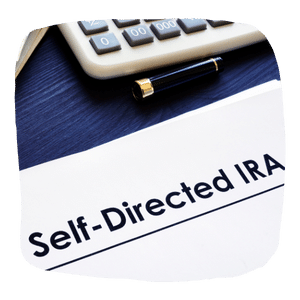Written By: MB Group
Real estate investing can be a lucrative venture, but it comes with its own unique set of challenges regarding taxes. As a real estate investor, you'll want to make sure you're maximizing your deductions and minimizing your tax liability. This post will explore some helpful tips to navigate the challenging tax landscape and to help you get started on keeping more of your hard-earned money.

A self-directed IRA can be a powerful tool for real estate investors. With a self-directed IRA, you can use your retirement funds to invest in real estate, and the income and gains from your investments grow tax-free until you take a distribution. This can be a great way to save for retirement while building your real estate portfolio. Consult a financial advisor to ensure a self-directed IRA is right for you.
When it comes to real estate investments, timing can be everything. Not only can it impact your returns, but it can also affect your tax liability. That's why it's essential to understand the difference between short and long-term investments and how they are taxed.
Short-term investments, typically held for less than a year, are subject to ordinary income tax rates. Any profits you make from selling a property within a year will be taxed at your regular income tax rate, which can be significantly higher than the capital gains tax rate.
On the other hand, long-term investments, typically held for more than a year, are taxed at a lower capital gains tax rate. The capital gains tax rate varies depending on your income level and how long you hold the property, but generally, it is lower than the ordinary income tax rate.
Keeping accurate records is essential for any real estate investor. You'll want to keep track of all income and expenses related to your investments, including rental income, repairs, and property taxes. This documentation will be crucial when it comes time to file your taxes and can also help you manage your investments more effectively.
Real estate investing can be expensive, but many expenses can be deducted from your taxes. Keep track of all costs related to your investments, including property management fees, repairs, and maintenance costs. These deductions can add up quickly and help reduce your overall tax liability.
By digitizing your records, you make smart and efficient decisions for your tax purposes and your convenience. Not only can this save you time and space, but it can also alleviate any potential headaches that may arise when managing your real estate investments. You'll no longer worry about losing or misplacing important documents such as receipts, invoices, and other essential paperwork.
Digitizing your records can be incredibly helpful in keeping track of expenses related to your property. This includes everything from repairs and maintenance to upgrades and improvements. By storing all of this information digitally, you'll be able to reference what expenses were incurred easily and when they were made, making it simpler to plan for any necessary repairs or upgrades.
Investing in real estate is a long-term game. Seeing the fruits of your labor takes time, effort,  and patience. But if you're committed to the process and have a solid plan in place, you can reap significant rewards in the long run. Holding onto your properties for over a year is one of the best ways to maximize your profits and reduce your tax liability.
and patience. But if you're committed to the process and have a solid plan in place, you can reap significant rewards in the long run. Holding onto your properties for over a year is one of the best ways to maximize your profits and reduce your tax liability.
It's crucial to remember that long-term investment tax benefits are not immediate. It can take several years for the property to appreciate in value and for you to see a significant return on your investment. However, the longer you hold onto your property, the more tax benefits you will enjoy.
Beyond the tax benefits, holding onto your properties for more than a year can also provide stability and consistency in your real estate portfolio. Focusing on long-term investments can build a diversified portfolio that generates steady, reliable income over time. This can help you weather any short-term fluctuations in the market and provide a stable source of income for years to come.
Real estate investing has many tax deductions to help lower your overall tax liability. Some deductions include mortgage interest, property taxes, repairs and maintenance costs, and depreciation. Consult with a tax professional to ensure you maximize your deductions and take advantage of all available tax breaks.
Real estate investing can be a great way to build wealth, but staying on top of your taxes is essential to ensure you're maximizing your deductions and tax liability. By following these tips and working with a qualified CPA, you can set yourself up for success and keep more of your hard-earned money in your pocket.
Navigating the complex world of real estate investing taxes can be challenging. That's why working with a knowledgeable and experienced CPA is essential. At the MB Group, we specialize in working with real estate investors to help them navigate the tax landscape and maximize their deductions. Contact us today to learn how we can help you keep more of your hard-earned money.
Tags: Taxes Real Estate
You've worked to build the nest egg that can last you throughout your golden years and leave an inheritance to those you care about the most. However, if you fail to utilize effective tax planning...
Read MoreIf you're looking to start a business, it's critical to choose the right business entity; and there are a range of factors to consider. Arguably, the most important factor is the tax rate. And with...
Read MoreAs you reflect on this year and plan for the next, a year end business checklist can help give you a simple roadmap to make sure you're headed in the right direction and not guessing your way into...
Read More